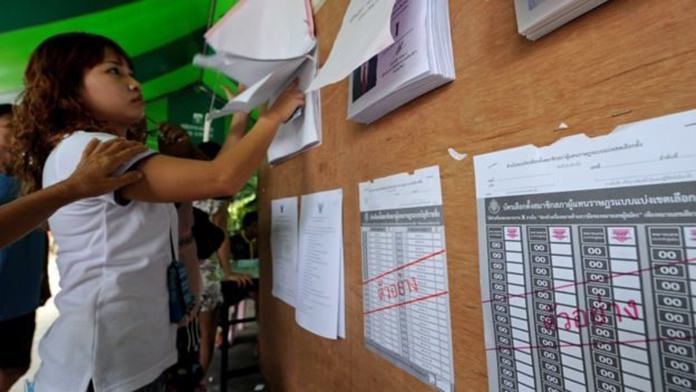
Bangkok, 13th September 2018 – Two more election laws have been promulgated in the Royal Gazette and during the 90 day waiting period for a law on Members of Parliament to take effect, the National Council for Peace and Order (NCPO) is to lift limitations on the Election Commission (EC) so it may begin defining polling zones.
The Royal Gazette has promulgated the 2018 Members of Parliament Organic Law, which consists of 178 articles and is to take effect 90 days after September 12, 2018. The law mandates that 350 Members of Parliament (MP) are to be selected through a polling zone system while another 125 are to be appointed through a party list system.
The 2018 Senator Organic Law was also published in the Royal Gazette. The legislation contains 99 articles and has already taken effect. It mandates that 250 Senators are to be chosen by His Majesty the King based on recommendations offered by the NCPO. Initially, 194 senators will be chosen to work alongside the Permanent Secretary of Defense, Chief of the Defense Forces, Royal Thai Army Commander, Royal Thai Navy Commander, Royal Thai Air Force Commander and the Royal Thai Police Commander, which will bring the number to 200. Another 50 will be chosen from a secondary list. All Senators are to be appointed before the first MP election.
Deputy Prime Minister Wissanu Kreau-ngam has explained that during the 90 day waiting period for the MP’s Organic Law to take effect, the NCPO will allow the EC to spend the first 60 days defining polling zones, and political parties the final 30 days to select candidates.
With elections required to take place within 150 days from the MP organic law coming into effect, polling should take place by May 2019. Wissanu said February 2019 may be too early for the vote to be organized.
Vice President of the National Legislative Assembly (NLA) Surachai Liangboonlertchai said today that the Assembly is to step up deliberations on another 30 laws, now that the MP and Senator organic laws have been promulgated. The NLA is to urge the Cabinet to submit all laws that need to be debated so that it may do so before its term ends.
Six more draft laws on local elections are expected from the Cabinet this month and will likely be put to the floor in October. Committees have already been assembled to begin considering the laws.
 |
 |





